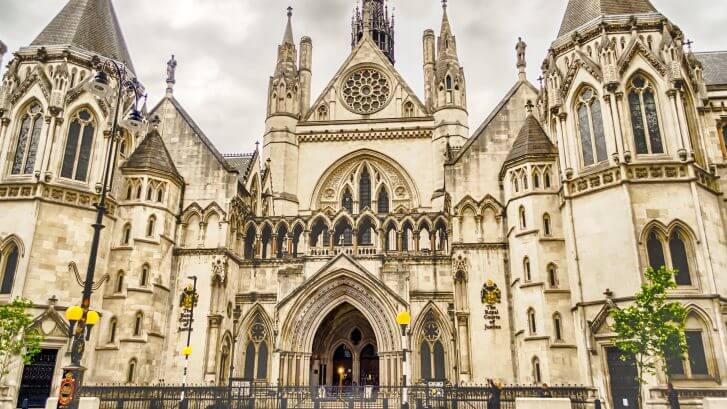Global Human Rights Sanctions are here at last, tackling alleged criminals in Russia, Saudi Arabia and elsewhere. But should they be greeted with unreserved enthusiasm?
Magnitsky’s legacy
The long-awaited announcement of the UK’s Global Human Rights Sanctions Regulations 2020 by the Foreign Secretary, Dominic Raab, seems to have been received with near-universal approval. Touted as our equivalent of the US’ and other countries’ Magnitsky laws, named for the Russian lawyer killed after investigating public-sector corruption, they are designed to target those who perpetrate violations of the most fundamental human rights, by way of asset freezes and travel bans.
The first list of designations includes Russians said to have been associated with the killing of Magnitsky himself (and others said to have failed to investigate both his original allegations and his mistreatment), Saudi Arabians said to have been associated with the killing of the journalist, Kamal Khashoggi, senior officers of the Myanmar armed forces, and North Korean state organisations responsible for security and prisons. Aside from some ruffling of feathers of the governments of those countries, what could possibly be wrong with such a law? In fact, there are at least three reasons to be concerned about it.
A solitary stand?
The first relates to the effectiveness or otherwise of the new UK-only sanctions regime. As a tool of foreign policy, sanctions have a number of potential aims, which include signalling of serious disapproval of certain conduct, and seeking to deter similar conduct in future. These aims (which are the most relevant here, given that the targets are unlikely to travel to, or to have assets in, the UK) are obviously better served where sanctions are pursued multilaterally, as a signal of the sentiment of the international community or a powerful set of nations, rather than as one nation alone.
As part of the EU, the UK played a significant role in driving the EU’s sanctions regimes, and it is notable that, while the EU is developing its own Magnitsky regime in parallel with ours, there seems to have been little or no attempt to link our efforts with theirs, or even with the (partly overlapping) measures taken by the US. To the extent that the new regime has been trumpeted as the UK’s first solo adventure in post-Brexit sanctions, it is arguably not a cause for unequivocal celebration.
A burden on business
The second reason for concern relates to the impact of sanctions regimes on business. These particular measures have risen to the top of the news agenda, but those involved in the compliance community know that they are the tip of a gigantic iceberg. While the aims of laws on sanctions, money-laundering and terrorist financing are obviously laudable, their complexity, and the potentially ruinous impact of even accidental breaches, have created a significant burden on UK businesses, which is by no means limited to the major banks. The nature of sanctions in particular means that all UK businesses, small and large, need to worry not just about freezing assets of listed people, but also about providing them with ‘economic resources’.
A few additional names to the screening lists may not make a huge difference to these businesses, which are already accustomed to these burdens. But each designation carries additional costs and raises the prospect of ‘de-risking’ – the turning away of customers whose names and details are a close match to the lists, or for whom the task of verifying their legitimacy is just that little bit too high. Iranian customers of UK banks will know this phenomenon only too well.
Judge, jury, and executioner?
The third reason for concern relates to the process for making these laws. There are already legal systems of course for dealing with serious types of misconduct, which involve legislatures prohibiting them, law enforcement identifying those responsible for them, and courts reaching independent judgments on their guilt and what should be done about it. The nature of sanctions regulations is that a minister, in this case Mr Raab, effectively acts as judge, jury and executioner, with little parliamentary or judicial oversight.
Admittedly, the UK system is significantly better than the EU’s in this respect, but the scrutiny is still relatively light touch. Because this is secondary legislation, Parliament can only ‘take it or leave it’ rather than amend specific provisions. The High Court, in due course, can be asked to review not the designation itself, but any refusal by a minister to vary or revoke it, and even then, on a limited basis.
A significant precedent
Ultimately, the reasons why these Regulations are a development worth noting are not about the particular assets and freedoms of a particular set of people, who are unlikely to set foot on UK soil, or to have assets here. The point is instead that they set a significant precedent, by which UK ministers can take swift and draconian measures against both state and private actors whom they suspect of serious wrongdoing, whether or not they have international support. That has the potential to achieve positive results, albeit indirectly and over time, but the potential for adverse results should also not be ignored.
About the author:

